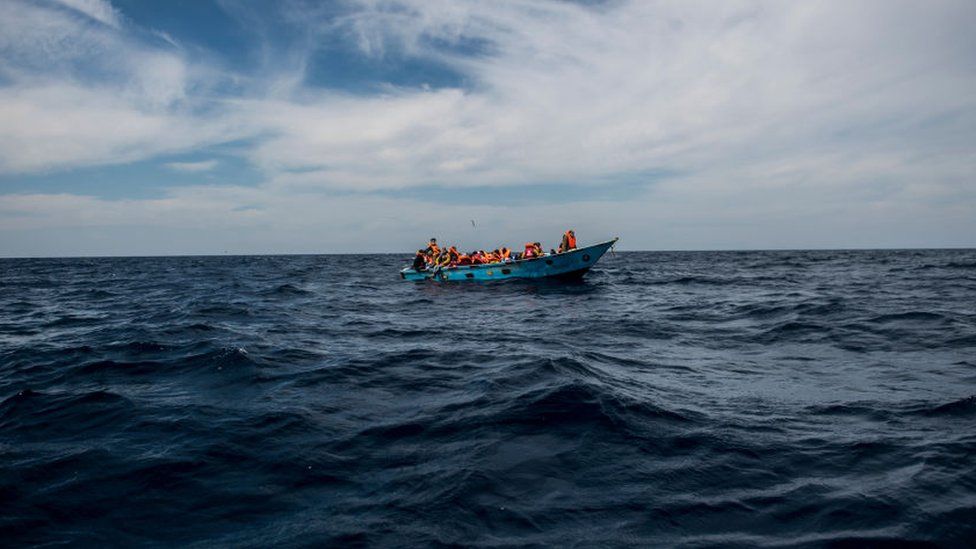News
Tragedy on the Red Sea: 68 Dead After Migrant Boat Sinks Off Yemen

Hope turns fatal for Ethiopian migrants as Yemen’s deadly Eastern Route claims more lives
What began as a desperate journey toward hope has ended in heartbreak once again. A smuggling boat carrying over 150 migrants, mostly Ethiopians sank off Yemen’s southern coast on Sunday, claiming the lives of at least 68 people. The fate of dozens more remains uncertain.
Only 12 people have been rescued, according to Abdusattor Esoev, the Yemen chief of mission for the UN’s International Organization for Migration (IOM). Local authorities have confirmed ongoing recovery operations in Abyan province, a region now infamous for such maritime disasters.
The Eastern Route: A Sea of Desperation
This is not an isolated incident. The Red Sea has become one of the most perilous migration corridors in the world. Every year, tens of thousands of East Africans—many fleeing conflict, poverty or repression—risk the journey across the so-called “Eastern Route” from Djibouti to Yemen. For many, Yemen is only a transit point in the greater hope of reaching Saudi Arabia or other oil-rich Gulf states where job opportunities—real or imagined—await.
But Yemen, still torn by civil war since 2014, offers little safety. Instead, the country has become a graveyard for many migrants and a hotbed for abuse, detention, and exploitation.
In 2024 alone, the IOM recorded 558 deaths on this route, most from shipwrecks. This latest tragedy marks yet another grim chapter in a crisis that continues largely unchecked and underreported.
Abyan’s Grim Role in a Silent Crisis
Abyan province, once better known for its date palms and coffee farms, has become one of the main entry points for smugglers ferrying migrants. Smugglers are known to overload boats, and reports have surfaced of passengers being forced overboard mid-sea to avoid detection by coastal patrols.
Just last month, at least eight migrants drowned after traffickers forced them into the sea. The survivors spoke of beatings, threats, and near-starvation before they even reached the Yemeni coastline.
This Sunday’s tragedy stands out not just for its death toll, but for how routine such horror has become. Recovery efforts have already begun, with local forces reporting a “significant” number of bodies retrieved, but dozens remain lost beneath the waves.
Why Are Ethiopians Still Risking It All?
Many of the passengers on this ill-fated vessel were from Ethiopia, a country that, despite reforms and international aid, continues to be wracked by internal ethnic strife and economic hardship. Young people, especially from rural areas, are often lured by smugglers promising a better life abroad. Families sometimes pool entire life savings to finance these journeys.
But most never make it to the Gulf. Instead, they find themselves stranded in Yemen, trapped between war, human traffickers, and hunger.
Local Reactions and Calls for Action
Social media outcry has begun to ripple across Ethiopian and Yemeni Twitter spaces, with hashtags like #RedSeaCrisis and #SayTheirNames trending regionally. A few diaspora-led NGOs have also stepped in, calling for international pressure on smugglers and better patrolling of maritime routes.
“What more needs to happen before the world pays attention?” tweeted one Ethiopian journalist based in Nairobi. “This is not just a migration issue. It’s a humanitarian one.”
The IOM has echoed similar sentiments, calling for more international cooperation to address the root causes of migration, better protections for migrants en route, and immediate humanitarian aid for survivors.
A Crisis That Keeps Repeating
As the sun sets over the Red Sea, families in Ethiopia are left waiting, some for good news, most for the confirmation of a nightmare. Meanwhile, the boats keep coming, and the bodies keep washing up on Yemen’s shores.
Until the world pays closer attention, until safe legal pathways replace smuggler routes, tragedies like these will remain a dark fixture of migration in the region.
This wasn’t the first mass drowning off Yemen’s coast and heartbreakingly, it likely won’t be the last.
{Source: IOL}
Follow Joburg ETC on Facebook, Twitter , TikTok and Instagram
For more News in Johannesburg, visit joburgetc.com















